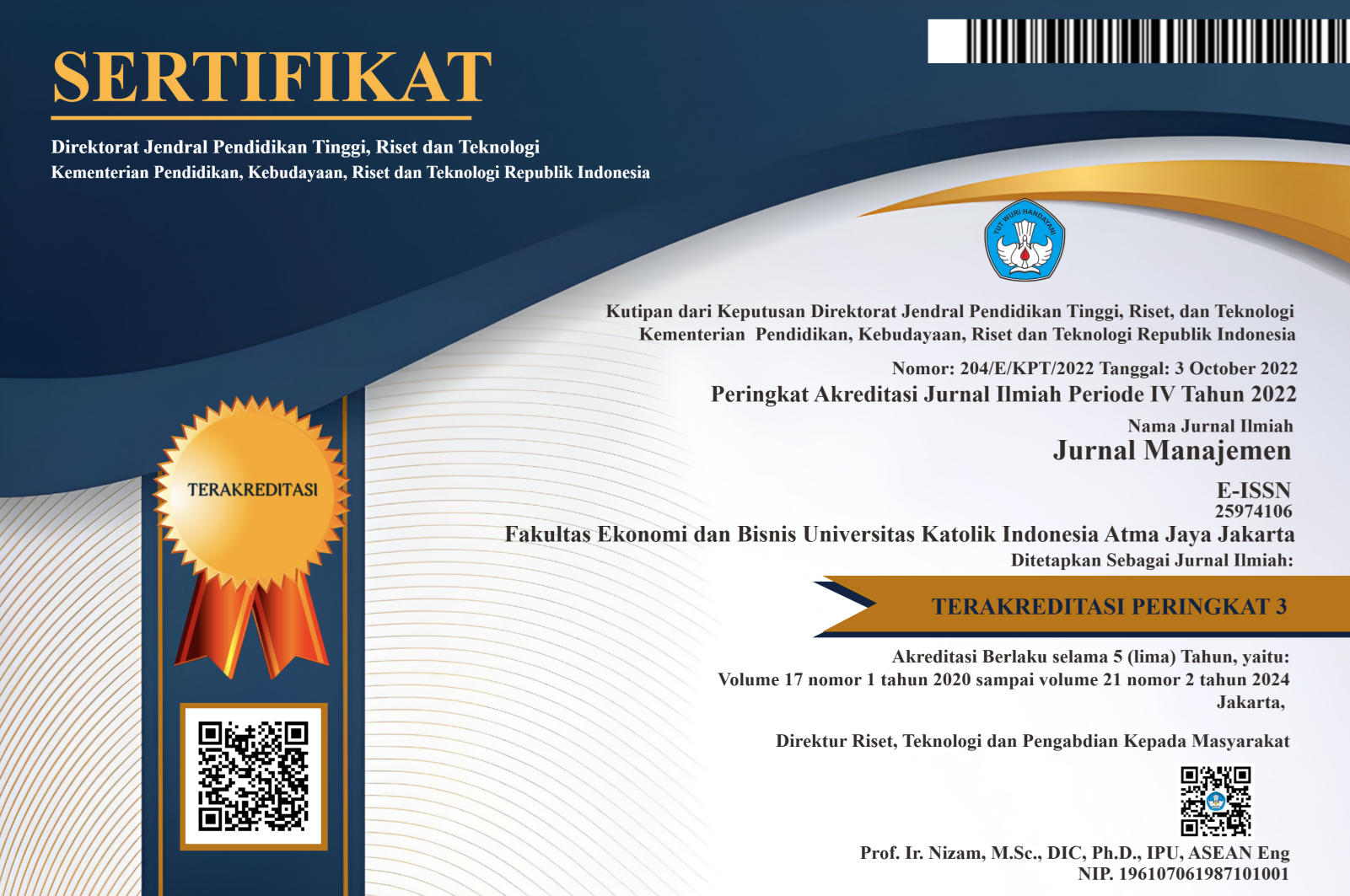BAGAIMANA TURNOVER INTENTION GENERASI MILLENIAL DAN NON MILLENIAL DIPENGARUH MEANING OF WORK DAN JOB SATISFACTION (STUDI PADA BAGIAN ADMINISTRASI PTS A, JAKARTA)
(STUDI PERBANDINGAN GENERASI MILLENIAL DAN NON MILLENIAL PADA BAGIAN ADMINISTRASI PTS A, JAKARTA
DOI:
https://doi.org/10.25170/jm.v14i2.785Keywords:
meaning of work, turnover intention, job satisfactionAbstract
This study was conducted with the aim to determine the effect meaning of work on intention turnover can be mediated job satisfaction at the administrative staff of the PTS A Jakarta. Sampling method used is random sampling by using a sample of 80 employees of the PTS A, Jakarta. Methods Data analysis used in this study is path analysis with macro software and SPSS 22 for windows Preacher-Hayes 2013 Moderate Mediation Model. The result of this research shows that the meaning of work can decrease the intention turnover through job satisfaction at the administrative staff at PTS A Jakarta. Significant work meanings increase job satisfaction. Significant job satisfaction towards turnover intention.
References
Ardichvili, A., & Kuchinke, P. K. (2009). International Perspectives on The Meanings of Work and Working. Current Research and Theory Advances in Developing Human Resources, 11, 155-168.
Biswas, S. (2010). Relationship Between Psychological Climate and Turnover Intentions and Its Impact on Organisational Effectiveness: A Study in Indian Organisations. IIMB Management Review, 22, 102–110.
Borchert, M., & Landherr, G. (2009). The Changing Meanings of Work in Germany. Advances in Developing Human Resources, 11, 204-21. Bourdieu, P. (2013), Cambridge: Algerian Sketches, Polity Press.
Chang, CS, Chang HH (2007). Effects of Internal Marketing on Nurse Job Satisfaction and Organizational Commitment: Example of Medical Centers in Southern Taiwan. J. Nurs. Res., 15(4) : 265-274.
Lukondo Hamukang’andu. (2013). Meaning of Work and Work Engagement Among Educators in Choma District, Zambia.
Kumar, M., & Singh, S. (2011). Roles of Perceived Exchange Quality and Organizational Identification in Predicting Turnover Intention. IIMB.
Lyon, K., Legg, S. and Toulson, P. (2005), Generational Cohorts. International Journal of Diversility in Organisations, Communities & Nations, Vol. 5 No. 1, pp. 89-98.
Mobley, W.H. (1977), Intermediate Linkages in The Relationship Between Job Satisfaction and Employee Turnover. Journal of Applied Psychology, Vol. 62, pp. 237-40.
Mobley, W., Horner, O., & Holingsworth, A. (1978). An Evaluation of Precursors of Hospital Employee Turnover. Journal of Applied Psychology, 63, 408–441.
Mobley, W. H. (1982). Employee Turnover: Causes, Consequences, and Control. Reading. MA: Addison-Wesley.
O’Bannon, G. (2001). Managing our Future: The Generation X Factor. Jurnal Public Personnel Management, Vol. 30 No. 1, pp. 95-109.
Pooley, E. (2005). Kids These Days. Canadian Business. Vol. 78 No.12, pp.67-88.
Rosso, B. D., Dekas, K. H., & Wrzesniewski, A. (2010). On The Meaning of Work: A Theoretical Integration and Review. Research in Organisational Behavior, 30, 91-127.
Spector, P.E. (1985). Measurement of Human Service Staff Satisfaction: Development of the Job Satisfaction Survey. Journal of Community Psychology, 13 (6), 693-713.
Downloads
Published
Issue
Section
License
Authors who publish with this journal agree to the following terms:
Authors retain copyright and grant the journal right of first publication with the work simultaneously licensed under a Creative Commons Attribution-NonCommercial-ShareAlike License that allows others to share the work with an acknowledgement of the work's authorship and initial publication in this journal.
Authors are able to enter into separate, additional contractual arrangements for the non-exclusive distribution of the journal's published version of the work (e.g., post it to an institutional repository or publish it in a book), with an acknowledgement of its initial publication in this journal.
Authors are permitted and encouraged to post their work online (e.g., in institutional repositories or on their website) prior to and during the submission process, as it can lead to productive exchanges, as well as earlier and greater citation of published work (See the Effect of Open Access).












